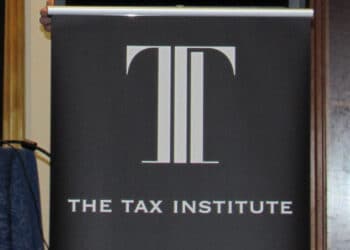Last week, the government revealed the details for how the tax on earnings will be calculated for its proposed $3 million threshold measure.
Under the proposed calculation, the ATO will use an individual’s total super balance to calculate their earnings, which means it will include all notional (unrealised) gains and losses. This means members impacted by the measure will pay tax on unrealised earnings.
In a press conference on Sunday, Treasurer Jim Chalmers said the decision to include unrealised gains in the earnings calculation for the proposed $3 million threshold was on the advice of Treasury.
“That’s the advice of Treasury, working with other relevant agencies, that that is the most efficient, simplest and best way to go about it, and so that’s what we intend to do,” said Mr Chalmers.
Mr Chalmers said there would be some elements of the policy the government planned to consult on further, such as the treatment of defined benefits.
Technical experts have already identified concerns about the way the government intends to calculate earnings for the measure.
In a recent article, Smarter SMSF chief executive Aaron Dunn explained even where the increase in a member’s total super balance is purely from changes in the market value of assets in the fund, they will still have a tax liability to pay.
“[This is] in addition to the subsequent CGT on the disposal of the asset in the future which must be applied proportionately due to the disregarded small fund asset rules,” he noted.
The proposed measure could therefore impose a significant cash flow burden on many funds, he continued.
Heffron managing director Meg Heffron has also raised similar concerns about cash flow issues, particularly where there are large unrealised gains involved.
Ms Heffron gave an example of Brad whose earnings were $1 million for the financial year due to the skyrocketing value of a property. Brad has $5.5 million in super.
The proportion of his earnings that will be subject to the extra tax of 15 per cent would be 45.45 per cent, she noted.
The tax in this case would be: 45.45% x $1m x 15% = $68,000 approximately, she explained.
“What if Brad’s super fund was really only generating enough cash to pay his pension? The property is rented out and earns around $150,000 per annum but with expenses etc, there’s not a huge buffer over the pension payments,” she noted.
“Normally that’s not a problem – Brad’s fund only needs enough cash to pay his pension and (worst case) if the property is untenanted for a while or needs major repairs so cash really dries up, he’s allowed to switch off (commute) his pension so that the fund doesn’t need any cash flow for a while.
“However, this special extra tax will apply regardless, and if the fund doesn’t have the cash to pay it, Brad will have to.
“So in fact this extra tax could mean Brad’s retirement income is used to pay tax on growth in the value of his fund’s property.”
The Treasurer has also responded to concerns raised by accountants regarding the impact of the measure on farmers and small business owners that hold one lumpy asset in their SMSF.
“I don’t think that’s a legitimate concern that’s been raised. First of all, under the current arrangements in your superannuation fund, you’re supposed to have some liquidity to deal with changes in circumstance. You’re not supposed to have your whole account tied up in illiquid assets,” he stated.
“Number two, you can choose how you meet this liability. It doesn’t have to be paid out of the fund. So there are other ways you can meet the liability.”
Mr Chalmers also stated that with the measure not set to commence until July 2025, SMSF would have a couple of years to consider their arrangements.



This is how dumb this is. We have clients with >$3M each in their fund. The accumulation portion has taxable component which will grow. Anyone with this balance more often than not has assets outside super.
So we:
1. Cash out the excess
2. Place the funds in the DFT
3. Pay the income to the corporate beneficiary assuming they are personally 30% or greater
Difference is
a. we still pay 30%.
b. We only get taxed on realised gains, not notional gains
c. The government misses out on tax revenue if the client dies suddenly and we don’t have any tax and super dependents.
Result: Increase in tax of zero compared to proposals but making tax payable on realised gains only.
Long term loss of income as no death benefits tax payable.
We done boys and girls in treasury, you smashed that one out of the park!!!!
This is the same treasury dept that says the TBC indexation is simple. From July 1st we’ll a grand total of 301 transfer balance cap possibilities.
The question needs to be asked, are these people just stupid or deliberately and maliciously destructive? Maybe they can let us know which one?
Why would super be the only case where we tax notional gains. What if it’s crypto or similar and the asset never comes back, this is taxing losses???
We think there’s pressure on auditors and valuations for property for pension and TBC reasons. Imagine the pressure and problems associated with actual tax liabilities.
I used to think treasury was generally reasonable, and in conjunction with the ATO did a reasonable job of regulating SMSF’s. This has certainly not been the case since 2017.
Next they’ll be releasing a study for super administration costs escalating. They are of course part of the problem and not the solution.
David, both stupid and deliberately and maliciously destructive. Last I heard is that they threw the KISS book into the recycling bin and I don’t mean the book on the band KISS.
Efficient and simple, maybe, but in what universe is this best way to calculate this? We already have the data to establish each member’s share of the fund’s taxable income, and we already have the data to apportion that share of income to the percentage of the member’s total balance below and over $3m.
As usual, another absolute joke of a change to the super system. Just because it’s something simple for them doesn’t mean it is for those it impacts. We get they want more money, but really, taxing unrealised capital gains because you’re too damn lazy to figure out how to do it without taxing unrealised gains. Load of crap.
An extra label on the tax return can separate actual income and unrealised income on the member statement, very easy for software designers to do this. Very easy for govt to see what is actual income and tax it accordingly. Rubbish
The problem is Treasury hardly ever come up with simple and efficient ways to do anything .
They seem to have no practical experience in administering superannuation funds . A further example is the way they have complicated NALE —-a whole lot of difficult rules for an area that was once fairly simple .
Cant wait to see how the treat the public service and MPs under the $3m threshold
Simple? The simplest measure would be to bring back the tax on pensions and withdrawals from super after age 60. As the meerkat says “Simples”.
The reality is that Treasury doesn’t understand this as well as it should, given that the government is clueless and has not generated a single original thought here. Treasury’s fervent pursuit of super denies the implications following the enormous structural changes from 2017. Has it modelled the long term impact of the changes? It is likely that within 10 or so years, most funds will be down to a value around the TSB as death is a compulsory cashing event. And, you know, the cashing of super generally requires asset liquidation and hence causes a CGT event. So contrary to Treasury’s delusion that unrealised gains are “never taxed”, they are and, on top of that, death benefits paid to a non tax dependant are taxable also. The tax haul as the boomers move through the system is likely to be eye watering.
But this is possibly the reason for the new earnings surcharge not being subject to indexation. Treasury wants this magic pudding to keep producing and it well knows that $3m will be easily breached. Modelling suggest that 10% of members will be impact in 10 years. “You have to be as smart as paint to keep this Puddin’ in order. He’s that artful, lawyers couldn’t manage him.”
The simplistic earning surcharge formula will be less impactful if a SMSF implements tax effect accounting. Administrators will have little choice which is another aspect of this. The public policy aims for simplicity so pushes implementation costs onto the private sector. APRA funds already use tax effect accounting and the earnings allocation to members is different to SMSF balance sheet approach. So lucky them, they don’t have any systems changes to contend with so are happy to proceed. I am yet to hear that Treasury has consulted with the SMSF sector to gain an understanding of the implementation issues that confront them. Just because this supposedly affects a low number of people doesn’t excuse the need for equity and fairness in the use of Treasury power and influence when constructing law.
I overlooked the potential double taxation on unrealised earnings being taxed again (i.e. CGT) on sale. Why do they not just use the same rules for applying tax as they do for every other type of entity and tax a higher rate on a proportional basis at that point? Because they want to get their hands on more than this would deliver….. not because the proposed way is simpler.
Are you saying that, at the time of sale, the base valuation (purchase cost) will be used to calculate the CGT, not the revised value per the previous tax return? WOW.. That is definitely double taxation
It is a very simple tax to implement/calculate with no changes to current data collection. All of the information required to calculate the tax is provided on the member information statement (MIS). The ATO can aggregate the members TSB from all superannuation interests. If the the tax was to be assessed on normal income tax earning then there would be a need to significantly split out out the earnings on the MIS to include taxable earnings,income attributable to pension, non-deductible expenses, non taxable earnings and transfers to/from reserves. A cost that would be incurred by all SMSF members not just the 0.5% of those (currently) impacted by the tax.
Of course members have options prior to the implementation of the tax. Get the surplus out of super, pay the disposal costs, pay the CGT on those assets early and shift them into potentially higher taxed investment structures. Another simple solution!!!
“Get the surplus out of super” only works if the member has reached their preservation age and can legally take those funds out of super
Absolutely woeful. Who has the cash to pay this tax year on year when you’re not actually realising a capital gain? This is a major blow for the superannuation system and I can see it having catastrophic impacts all round. We can only assume that there is no tax offset when the next market downturn hits, but then the rebound will taxed even if the TSB still lower than previous (over a couple of FYs, similar to the most recent years). What a joke.
I can only hope that the Treasurer does not understand what unrealised gains means and that he is educated by the time we see the proposed legislation. He should also recognise that a super fund is not required to have cash flow for personal tax liabilities which is how this additional tax will be levied. His responses are nonsensical.
That’s the advice of Treasury, working with other relevant agencies, that that is the most efficient, simplest and best way to go about it, and so that’s what we intend to do,” said Mr Chalmers. WOW!